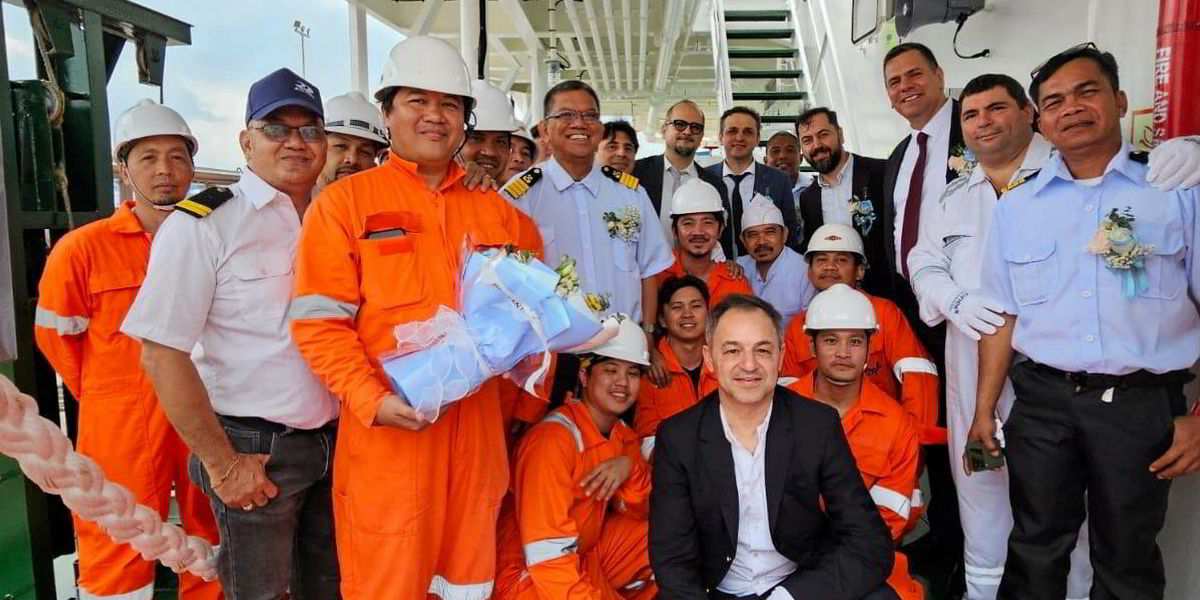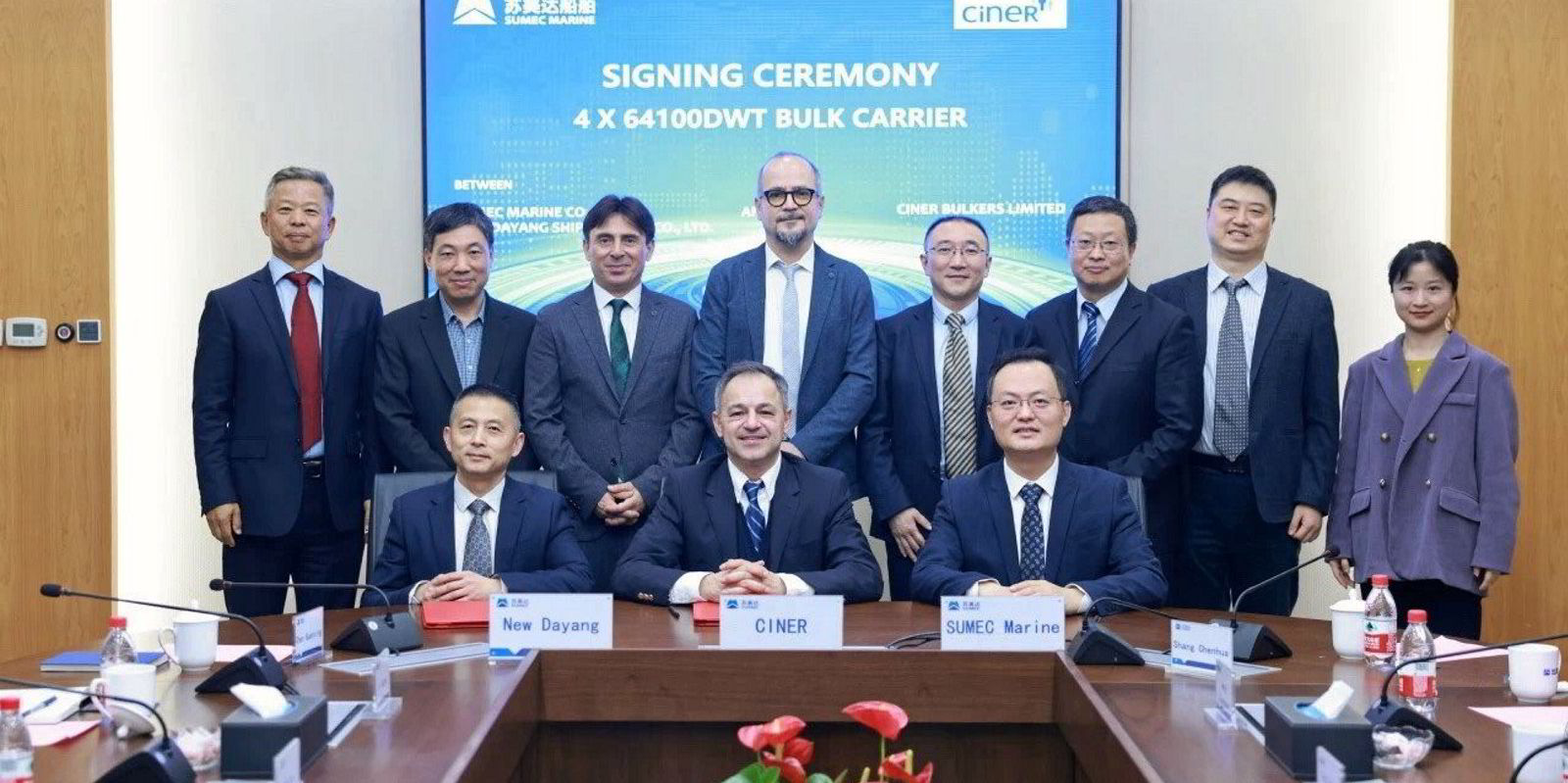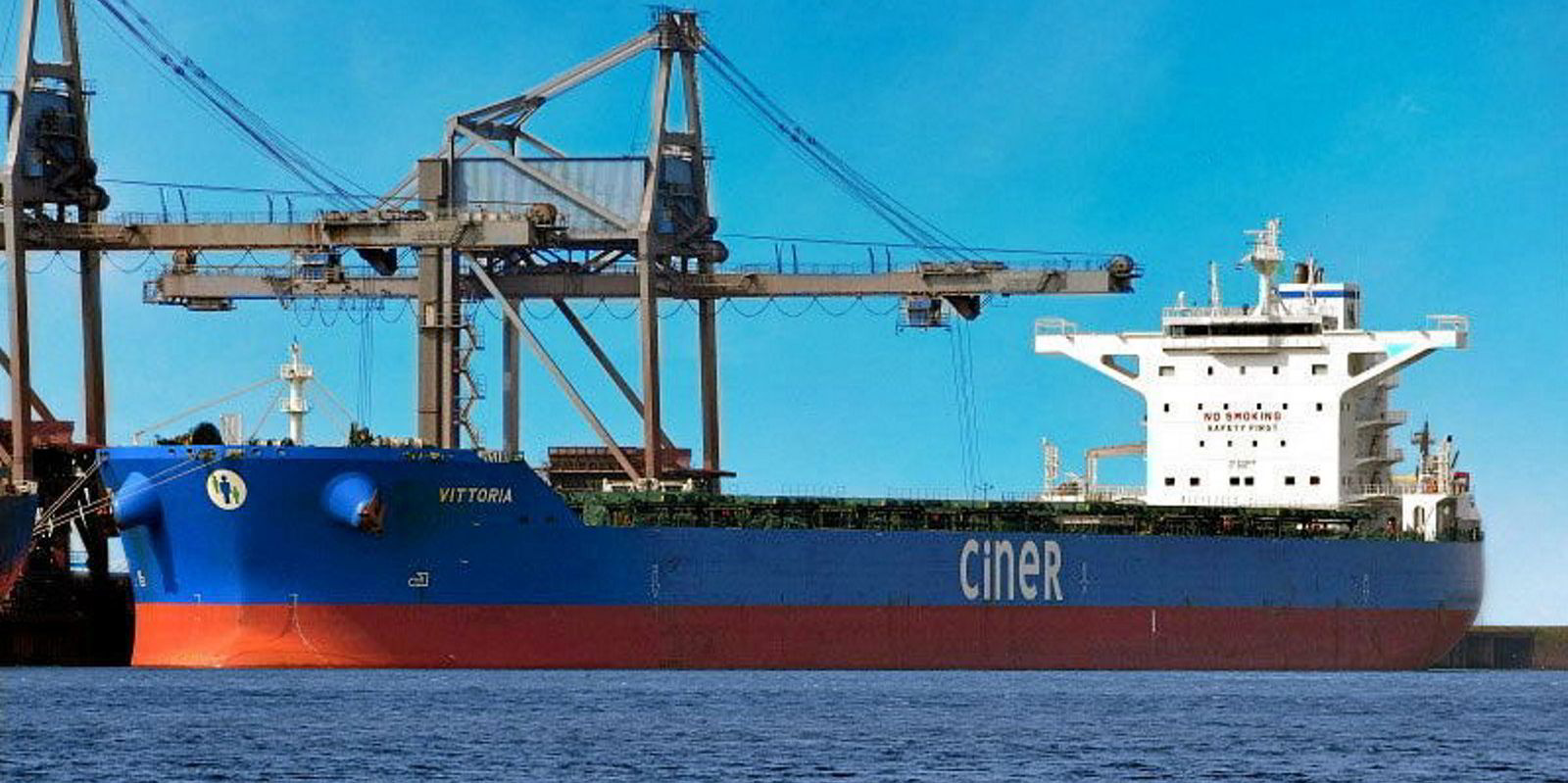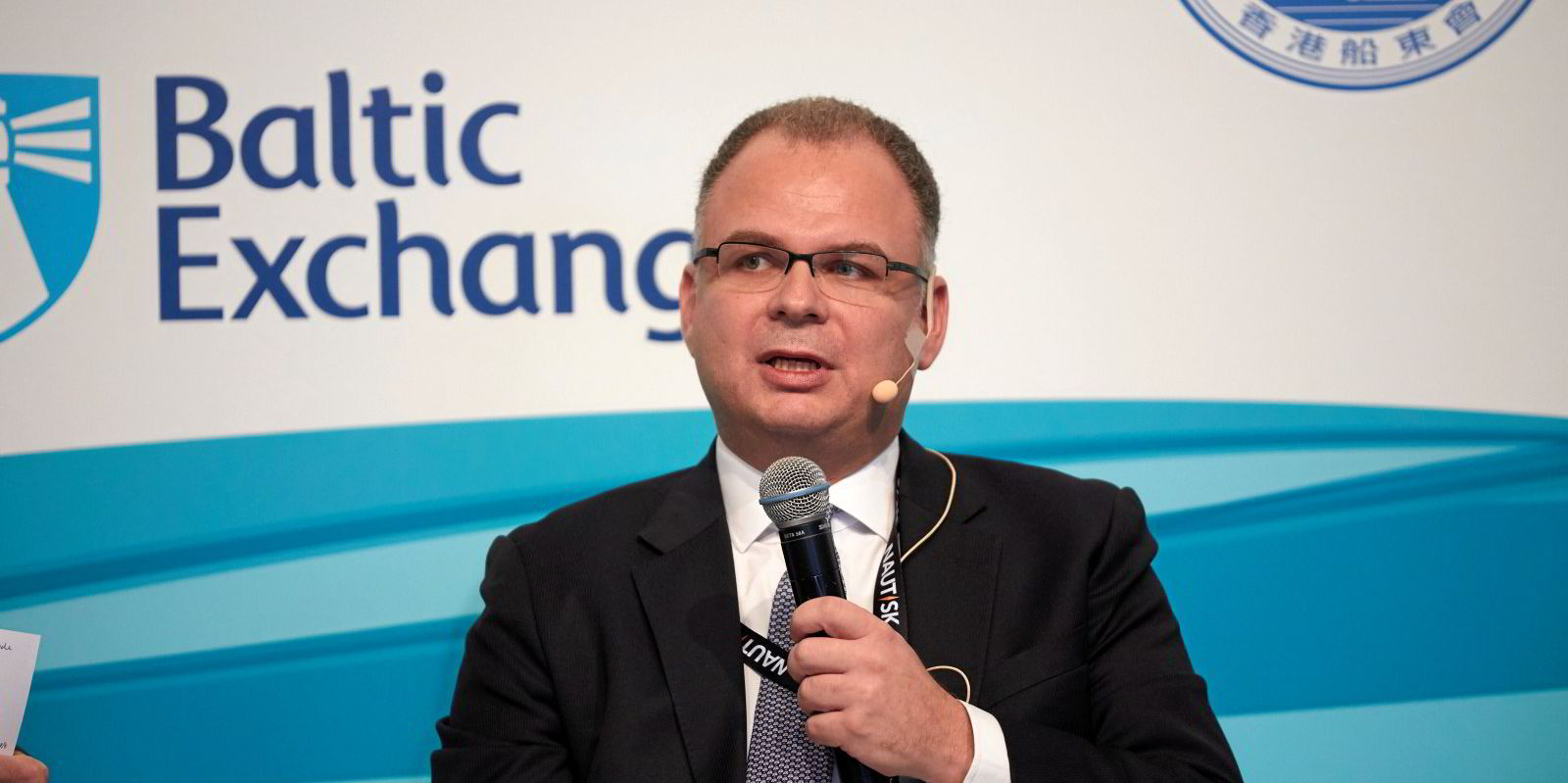Turkish bulker giant Ciner Shipping has extended an expansion drive with the addition of further newbuildings and more deals likely to be signed shortly.
The investments, backed by financing worth more than $1bn from Chinese institutions, have pushed the size of Ciner’s bulker fleet to 50 ships and its value past the $1.6bn mark.
This makes Ciner the largest owner of dry cargo vessels in its homeland, alongside Yasa Shipping.
However, Ciner’s fleet is expanding faster than that of its rivals. The company is known to have amassed 22 newbuilding orders — ranging from handysizes, to ultramaxes and post-panamaxes — since September 2021 at three different Chinese yards.
Information has now emerged that Ciner chief executive Vasileios Papakalodoukas has signed contracts at China’s Hengli Heavy Industry (Hengli HI) for four further firm kamsarmaxes.
The scrubber-fitted quartet is due for delivery between the end of March and the end of September 2027.
The deal means Hengli HI has become the fourth Chinese shipyard at which Ciner currently has vessels under construction.
New Dayang is building seven ultramaxes for the Turkish company — and the tally may even rise to nine in the coming days, TradeWinds is told.
Chengxi Shipyard is due to deliver a trio of 88,800-dwt post-panamaxes within the third quarter of this year.
As for Jiangmen Nanyang Engineering, it has already delivered to Ciner two in a series of 11 open-hatch 40,500-dwt bulkers.
Much of Ciner’s finance for these deals comes from inside China.
Its latest newbuildings at New Dayang are backed by China Merchants Commerce Financial Leasing (CMCFL) — a unit of the China Merchants Group.
This comes on top of more than $1bn worth of Chinese leasing transactions for secondhand ships and newbuildings that Ciner has concluded since 2019.
Its partners on such deals have included AVIC International Leasing, CMCFL, China Merchants Bank Leasing, China Construction Bank, SPDB Financial Leasing, Jiangsu Financial Leasing, CSSC Leasing and China Huarong Financial Leasing.
Charterer backing
Ciner is not on a speculative expansion spree.
The company is expected to employ most of its open-hatch handysize newbuildings in its own group’s soda ash trading operations.
Ciner has also secured index-linked, long-term employment with Cargill for a number of its ultramaxes.
Its kamsarmaxes at Chengxi are to be employed by SwissMarine, Singapore’s PCL (Shipping) and Javelin Commodities — a low-profile trader founded in 2015 led by former Goldman Sachs senior trader Peter Bradley.
Ciner is also scouring the secondhand market for opportunities. However, it may also shed some of its oldest vessels as the newbuildings are delivered.
The company currently has 24 bulkers on the water, from handysizes to capesizes.
The Ciner fleet also includes four container ships each with a capacity of 9,000 teu.
The company used to be active in tankers as well, but it got out of that sector two years ago with a $222.5m en-bloc sale of four suezmaxes to John Fredriksen’s SFL Corp.
According to sources following the company, Ciner has focused its expansion on bulkers since, given that it considers prices for such ships to be at less giddy levels than those of tankers and even more so of gas carriers.
Ciner’s ascension is remarkable considering that it only started business in 2011, when it took delivery of its first newbuilding.
It had been established just two years before, right after the 2008 global financial crisis, with backing from the Ciner family which has interests in mining, media and textiles.
Apart from putting it on top of the Turkish bulker league tables, Ciner’s newbuilding splurge also turned it into a force to be reckoned with on an international scale.
According to VesselsValue data, Ciner’s currently expanded dry bulk orderbook is the 12th biggest in the world, in terms of tonnage.
Excluding public shipowners or other players owned by banks and governments, it easily makes the top 10 — likely even the top five.







